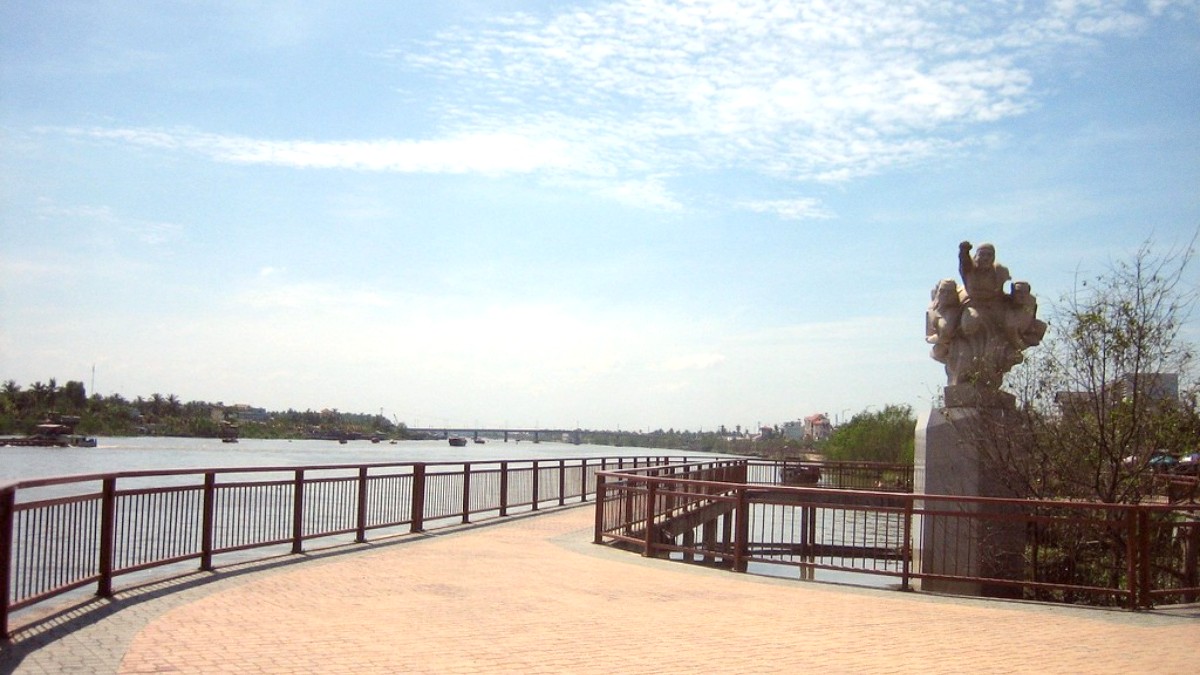
Mekong Delta, Vietnam
Here, you discover not just a destination, but a way of life deeply tied to the generous Mekong River and its fertile delta.
Ben Tre's history, like much of the Mekong Delta, is deeply intertwined with its fertile land and strategic waterways. For centuries, the region benefited from the rich alluvial soil, becoming a hub for agricultural production, mainly rice and various tropical fruits.
This agricultural prosperity fostered a strong sense of community and self-reliance among its people, who developed traditional crafts and industries, specifically those centered around coconut cultivation. The ingenuity of turning every part of the coconut into a product speaks to this long history of resourcefulness.
To give you a quick overview of what Ben Tre offers, here is a brief look at its defining characteristics, demonstrating its tranquil charm and unique cultural identity within the Mekong Delta.
Reaching Ben Tre is straightforward, mainly by road from Ho Chi Minh City, which takes about 1.5 to 2.5 hours by bus or private car. Once in the province, an extensive network of local boat services and narrow pathways for comprehensive exploration. While Ben Tre City offers standard transportation options, the most authentic experiences often call for venturing into the rural areas using bicycles, motorbikes, or small sampan boats.
Region became a hub for rice and fruit production due to fertile alluvial soil.
Traditional crafts and industries developed around the versatile coconut palm.
Strategic stronghold for Viet Cong, utilizing dense waterways for cover.
A distinguished site of conflict during the war, shaping local identity.
A quiet pride in survival and adaptation, living off the land.
Ben Tre offers a blend of natural beauty, agricultural life, and cultural depth. This province presents an authentic Mekong Delta experience, away from the more crowded tourist spots.
Ben Tre Province is home to approximately 1,291,491 people (2019 Census), largely rural. Agriculture, with coconut cultivation at its core, anchors the economy. Coconut products, fruit orchards, and aquaculture define the main industry.
Ben Tre's landscape features an intricate network of Mekong River tributaries, canals, endless coconut groves, and diverse fruit orchards. Cultural immersion includes traditional craft villages, river boat tours, homestays, and "Đờn ca tài tử" music performances.
Consider taking a small boat trip early in your visit. This truly shows how water shapes daily life in Ben Tre. You see houses built on stilts, children playing by the banks, and small trading boats carrying goods.
This section gives you practical advice to help you plan a trip to Ben Tre. Information on seasons, visa rules, and budget planning guides your journey.
Prepare for a rewarding experience in this tranquil part of the Mekong Delta.
The dry season (December-April) is best for outdoor activities. The rainy season (May-November) features lush landscapes and ripe fruits.
Most travelers need a visa for Vietnam; e-visa or Visa on Arrival (VOA) are common options.
Vietnamese Dong (VND) is the currency. Options for all budgets from $20/day to $400+/day.
Travel insurance is highly advisable for all travelers to Ben Tre and Vietnam. Ensure your policy covers medical emergencies, emergency evacuation, trip cancellation, and theft.
Available for citizens of 80 countries, applied online through the official Vietnamese Immigration Department website. Permits single or multiple entries for up to 90 days.
Approval letter from a licensed Vietnamese travel agent Before arrival. Obtain visa stamp at designated international airports. Not for land/sea entry.
Applied at a Vietnamese embassy or consulate in your home country. For those not qualifying for e-visa or VOA, or if a physical visa stamp is preferred.
Vietnamese Dong (VND) is the official currency. 1 USD ≈ 24,000 - 25,000 VND. Exchange major currencies at banks or gold shops. ATMs are available in Ben Tre City. Cash is preferred for most transactions.
Not a tradition but appreciated, especially in tourist areas. 5-10% in mid-range/high-end restaurants. Small gratuities for guides/drivers ($5-10/day for guides, $2-5/day for drivers), hotel staff (10,000-20,000 VND).
Eat local street food, use Xe om (motorbike taxis) or bicycle rentals, stay in homestays, bargain politely in markets, drink local beer/coffee, and refill a reusable water bottle.